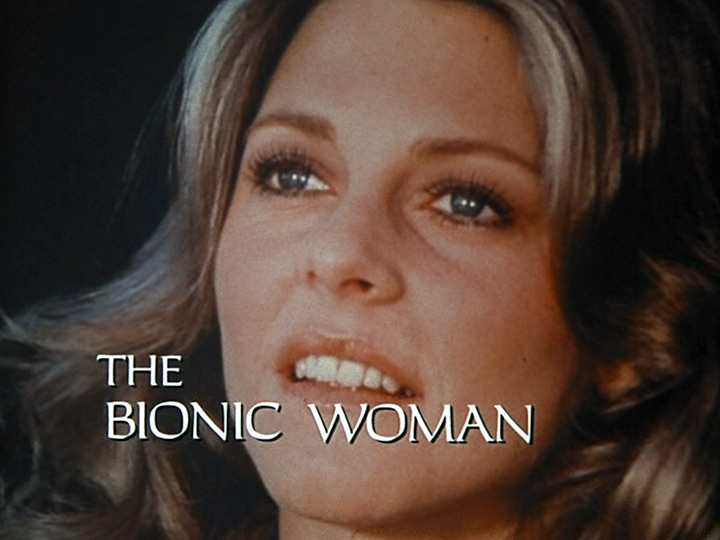Bionic Woman Lindsay Wagner Thinks Today’s Super-Heroines Need a “Feminine Aspect of Wisdom and Intelligence”

Lindsay Wagner’s starring role in The Bionic Woman (1976-78) counts among the first woman-fronted super-heroine TV shows—alongside Lynda Carter’s Wonder Woman in 1975-79, which also had a slightly earlier iteration in 1967. This year, we have Supergirl and Jessica Jones, which arguably serve as the modern-day counterpoint to the shadows cast by Wonder Woman and The Bionic Woman in the mid-’70s.
Has anything has actually progressed since then, given that these modern shows are still about slim, conventionally attractive white women kicking bad-guy butt? I’d argue that narratively, we’ve made some pretty significant strides; Wonder Woman and The Bionic Woman don’t hold up quite so well on re-watch, taken in comparison to the complexity and nuance of JJ and Supergirl.
Lindsay Wagner might well agree with that, but she still had some qualms with the portrayal of woman heroines in Supergirl and JJ, which she expressed during a panel at the 2016 Television Critics Association:
It’s great that women are now allowed to be heroes. But I am also concerned when I see that a lot of the modern day ideas of a female superhero are just yesterday’s male hero in some tights. The whole point of having a woman in a leadership position of any kind is to hopefully bring the feminine aspect of wisdom and intelligence to whatever they’re attempting to do. Hopefully we get used to technology so we don’t have to be mesmerized by it and get back to story. We talked a lot about that on Bionic, and we were constantly pushing ourselves. I’m hoping we start to grow now.
I realize that the snarky response to this quote would be to point out that The Bionic Woman was itself a spin-off of a male superhero TV series called The Six Million Dollar Man, although Bionic went on to prove its success and earn its own audience. I don’t think Wagner is denying that women heroines got short shrift in the ’70s, and I don’t think she’s wrong in pointing out that they still do even now, and that’s a problem.
Jessica Jones may not be a spin-off of a male hero (nor was Wonder Woman in the ’70s), but I can understand why Wagner would see Supergirl that way—and why she’d hope that we’d have moved further past that sort of thing since the ’70s. Much as it pains me to admit it, part of the pitching process for Supergirl probably relied heavily on the fact that Superman currently has a popular movie franchise, and his success and name recognition might help draw viewers to the TV series (even though the show can’t mention Superman by name and instead relies on the strength [no pun intended] of its heroine).
However, Wagner’s comment about femininity seems a little off-base to me, and not just because it smacks of a sort of second-wave lens on women’s rights that relies on old school theories about women being “more peaceful” or “more nurturing” than men. Women are certainly socialized to embrace those qualities, whereas men are stigmatized for doing so, but I don’t think Wagner is acknowledging that here. Instead, it seems as though she still buys into some ideas about the supposed “natural” gifts that women are presumed to have (and that men are presumed to lack). I’m not so surprised to see 1970s feminism coming from a woman who starred in a ’70s TV show, though, even if I do hope that Wagner thinks over this sentiment in the future.
The part of her quote that does hold a grain of truth for me is that I do think it’s valuable to see a diverse range of women heroines. Of course I am referring here to the fact that, still, our woman-fronted heroine shows feature waifish white ladies even in these modern times, as I’ve stated above. I am also referring to their personalities and behaviors and fictional backgrounds, too. The more different women we see in these shows, the more opportunities we have to show a range of experiences, and the more we can prove that women aren’t a monolith.
I would love to see a woman hero who is unabashedly feminine; I don’t need all of my Strong Female Characters to hate pink and eschew petticoats in order to prove their “strength.” Between Supergirl and Jessica Jones, I feel like we have a couple of different representations of what female heroism might look like—but it’s still only two examples, and even though they’re very different, that doesn’t mean I wouldn’t love to see way more examples. There are plenty of women out there who still can’t find anything to relate to when it comes to Supergirl and JJ, and that’s exactly why we need more stories.
It’s possible that Wagner hasn’t finished watching all of Jessica Jones and Supergirl, and that she might be pleasantly surprised by some of the narrative risks taken in those shows! She also might be pleasantly surprised to see that JJ avoids a lot of the “mesmerizing” technology to which she refers; a lot can be achieved by relying more on practical effects and strong storytelling, plus all the fancy CGI in the world won’t save a boring superhero story. I still ultimately agree, however, that they aren’t enough and simply do not contain the full breadth of what I dream about when it comes to representations of female leadership on TV. Although I’m sure Wagner and I would disagree on the finer points, I think we might be able to come together when it comes to that.
(via Comic Book Resources, image via The Bionic Woman Wiki)
—Please make note of The Mary Sue’s general comment policy.—
Do you follow The Mary Sue on Twitter, Facebook, Tumblr, Pinterest, & Google +?
Have a tip we should know? tips@themarysue.com